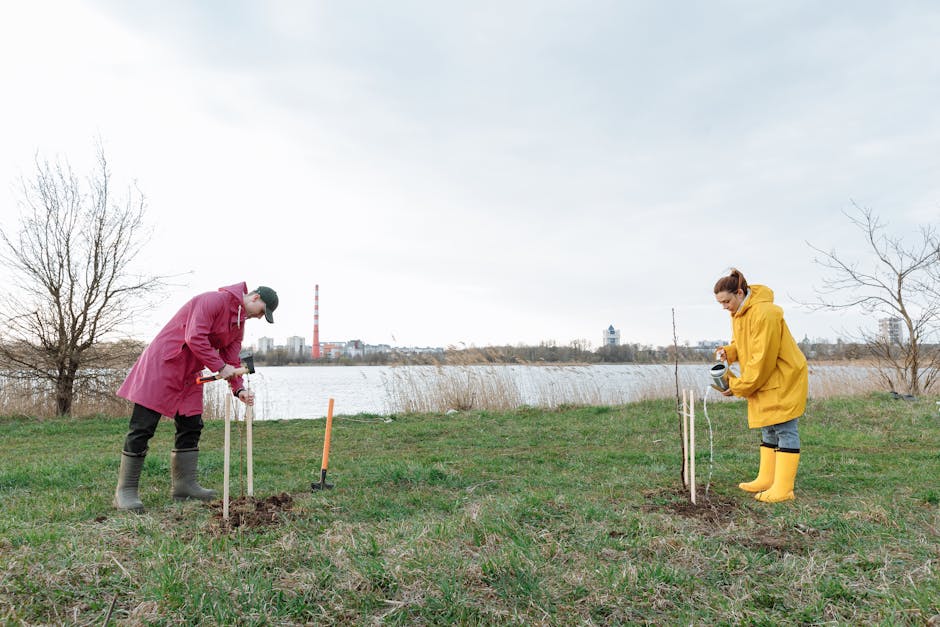The agricultural sector is inextricably linked to water resources, often utilizing substantial volumes for irrigation. As water scarcity becomes a more pressing global concern, innovative approaches to water management in farming are paramount. This article explores various strategies to enhance water efficiency in agricultural operations, ensuring sustainable practices for the future.
Water, the lifeblood of agriculture, is often squandered in conventional irrigation methods. Drip irrigation, sprinkler systems, and flood irrigation are common techniques, but each has its limitations concerning water usage. Identifying the most appropriate irrigation approach for specific crops and environmental conditions is crucial for minimizing waste. Soil moisture monitoring plays a vital role in this process. Advanced sensors can track soil moisture levels, enabling farmers to precisely determine when and how much water is needed. This precision avoids overwatering, reducing water loss and promoting healthier plant growth.
Precision agriculture, leveraging technology to tailor farming practices, is another key aspect. Employing Geographical Information Systems (GIS) and remote sensing allows farmers to map out their fields, identifying areas with varying water needs. Drones and satellite imagery can provide real-time insights into crop health and water stress, enabling targeted irrigation interventions. Combining this data with weather forecasts allows for dynamic adjustments in irrigation schedules, further optimizing water usage.
Crop selection is a significant factor in water conservation. Choosing drought-tolerant crops adapted to the local climate is an effective strategy. Many native or heirloom varieties possess a natural resilience to arid conditions, requiring less water input for optimal growth. Developing and implementing sustainable agricultural practices focusing on water conservation is crucial for this aspect.
Innovative irrigation technologies offer further avenues for improvement. A promising technique is subsurface drip irrigation, where water is delivered directly to the plant roots, minimizing evaporation and runoff. Another promising approach is the use of treated wastewater, often a readily available but underutilized resource. Implementing proper treatment and ensuring safety protocols are paramount to safeguard both water quality and human health.
Beyond irrigation, several other methods contribute to water conservation in agriculture. Conservation tillage methods, which minimize soil disturbance, enhance water infiltration and reduce runoff. Cover cropping, a practice involving planting vegetation between rows of cash crops, further improves soil structure, retaining moisture and reducing erosion. These methods collectively enhance the soil’s capacity to absorb and retain water, reducing the need for frequent irrigation.
Sustainable water management extends beyond the field. Implementing water harvesting techniques, such as collecting rainwater and storing it in reservoirs, can significantly reduce reliance on groundwater and surface water sources. Careful planning and management of water infrastructure, including efficient water distribution networks and reservoirs, are critical for ensuring equitable access and reducing wastage.
Another pivotal factor is understanding the specific needs of different crops. Water requirements vary substantially depending on factors like plant type, growth stage, and climate. By assessing these variables, irrigation schedules can be precisely tailored to maximize water efficiency and crop yields. This understanding requires continuous monitoring and data analysis.
Addressing water pollution from agriculture is equally critical. Using fertilizers and pesticides judiciously, alongside implementing soil health improvement programs, minimizes the risk of contaminating water sources. Implementing water-efficient fertilization strategies can drastically lower fertilizer runoff and thus, pollution levels. The selection of appropriate fertilizer types also plays a significant role. Adopting sustainable fertilization strategies, promoting soil health and minimizing chemical inputs, promotes water quality.
Educating farmers about best practices is essential for driving widespread adoption of water-efficient techniques. Farmer training programs, workshops, and demonstration plots can help disseminate knowledge and showcase the positive impacts of these approaches. Access to appropriate technology and financial support for implementation is also critical. Government policies and incentives play an instrumental role in fostering a culture of water conservation in agriculture.
Ultimately, enhancing water usage in farming necessitates a multifaceted approach. It encompasses innovative irrigation technologies, strategic crop selection, soil health management, and proactive water resource management. Employing precision agriculture techniques and fostering a culture of water conservation among farmers are key ingredients in a sustainable agricultural future. A holistic understanding of the complex interplay between water, soil, and crops is fundamental. Furthermore, collaboration between researchers, farmers, and policymakers is essential for the continuous advancement of sustainable practices.












